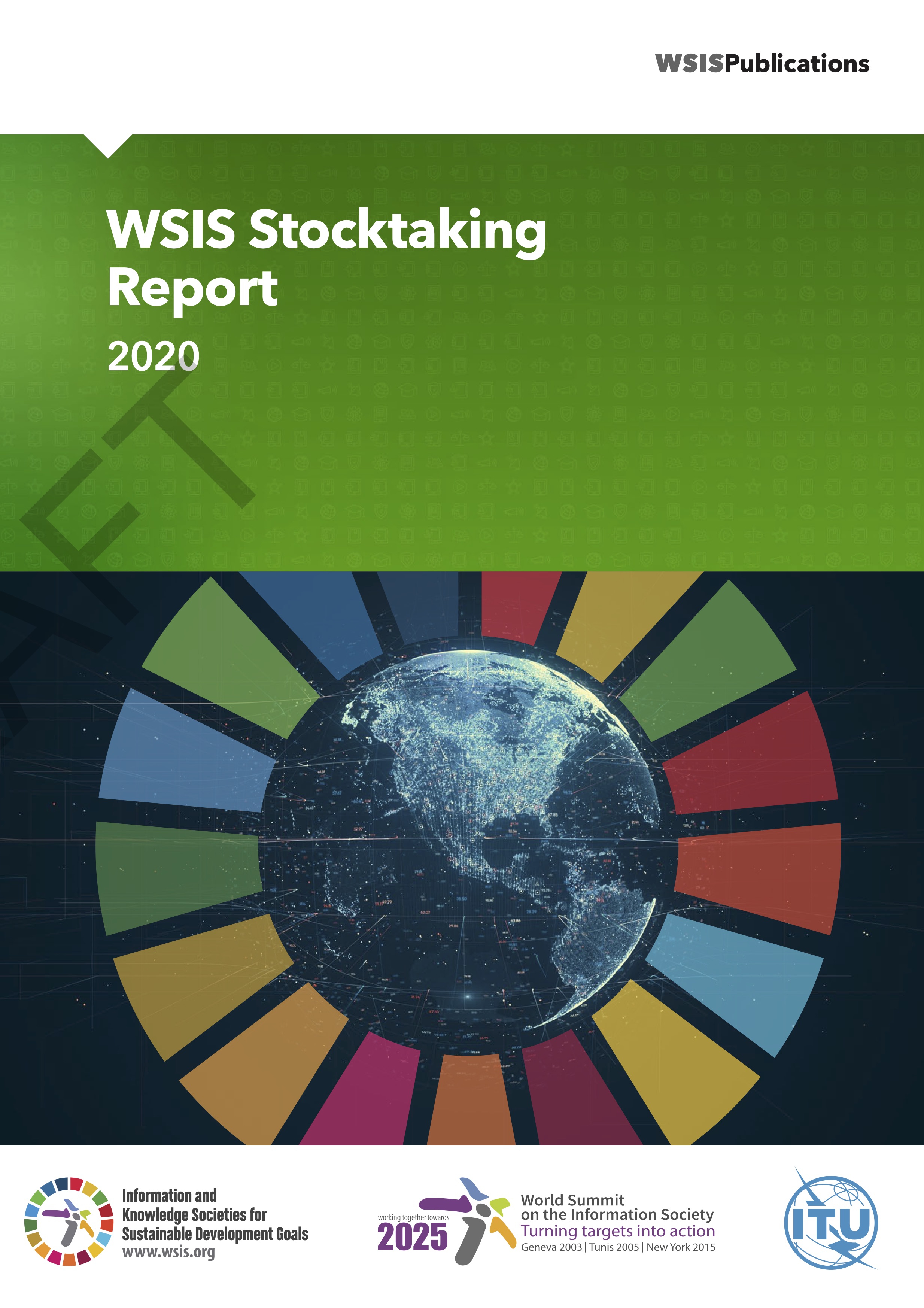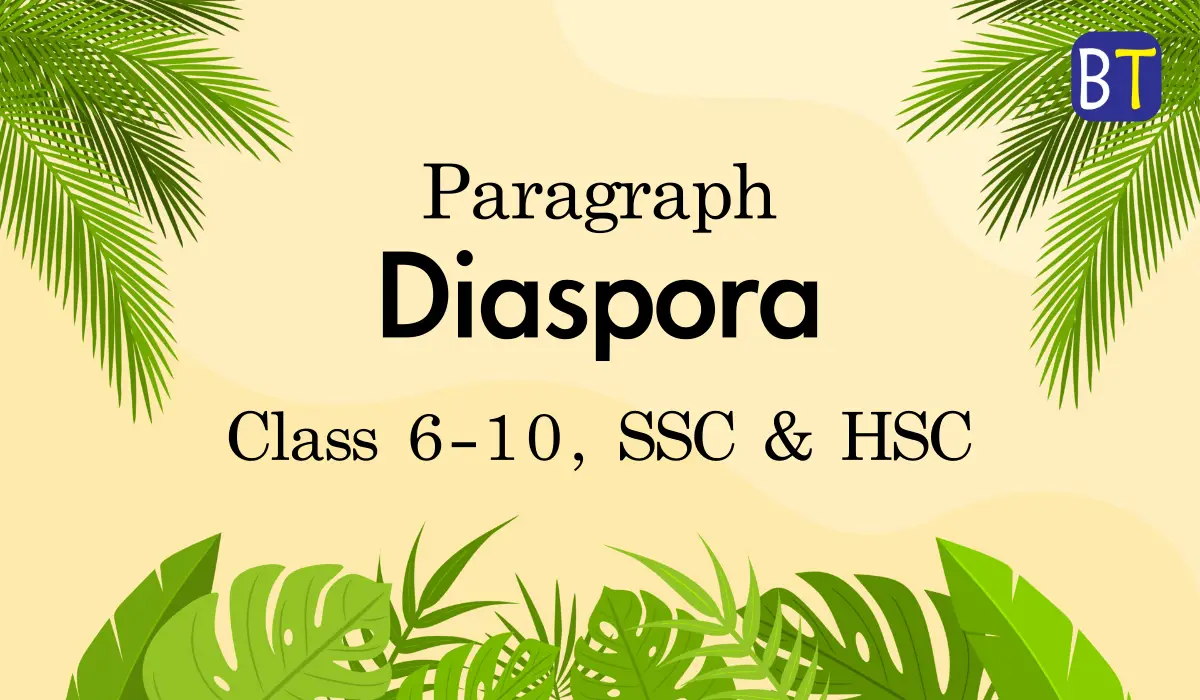The Diaspora paragraph identifies the dispersion of a group of people. It discusses the movement of a community from their homeland to various parts of the world.
The term “diaspora” encompasses the scattering of people due to historical events or socioeconomic factors. This migration often leads to the formation of distinct communities in different regions, influencing the cultural, social, and political dynamics of both the home and host countries.
Understanding diasporas is essential in comprehending global interconnectedness and the impact of migration on societies. It also sheds light on the diversity and multiculturalism that enriches human experiences and contributes to the rich tapestry of human history and civilization.
Diaspora Paragraph 100 Words
The diaspora is a term that refers to the dispersion of a particular group of people from their original homeland to other places around the world. This phenomenon has been prevalent throughout history, as people have moved and settled in different regions for various reasons such as economic opportunities, political conflicts, or seeking a better life.
The diaspora has contributed significantly to the cultural diversity and social fabric of societies globally. It has resulted in the formation of vibrant communities that maintain their customs, traditions, and languages, enriching the overall human experience. The diaspora plays a crucial role in preserving heritage and fostering connections between individuals and their ancestral roots.
It also serves as a source of inspiration and motivation for many, as they strive to succeed and make a positive impact in their adopted countries. The diaspora’s influence is pervasive in areas like arts, music, literature, and cuisine, showcasing the power of cultural exchange and cross-pollination.
Diaspora Paragraph 200 Words
The concept of diaspora refers to the dispersion or scattering of a population from their original homeland. It is often used to describe the movement of people who leave their country of origin and settle in other parts of the world.
Diaspora communities can be found in various countries, and they often maintain strong connections with their ancestral homeland through cultural traditions, language, and shared identities. These communities play a significant role in promoting cultural diversity and preserving their heritage. Diaspora can also have economic implications, as many members contribute to the development of both their host country and their country of origin through remittances and investments.
Overall, diaspora communities are a reflection of migration patterns and offer valuable insights into the complexities and dynamism of human movement in today’s globalized world.
Diaspora Paragraph 250 Words
The term diaspora refers to the dispersion of a group of people from their original homeland to different parts of the world. Diaspora communities often maintain a strong connection to their cultural roots and heritage, while simultaneously adapting to the customs and traditions of their adopted countries.
This unique blending of identities and experiences is a common characteristic of diaspora populations across the globe. Throughout history, diaspora groups have played a significant role in shaping global culture, politics, and economics, contributing to the rich tapestry of diversity that defines our interconnected world.
The concept of diaspora extends beyond mere geographical relocation, encompassing a complex interplay of history, identity, and belonging. Recognizing and understanding the experiences of diaspora communities is essential for promoting inclusivity and fostering cross-cultural understanding in our increasingly diverse societies.
Diaspora Paragraph 300 Words
The term “diaspora” refers to the dispersion or scattering of a group of people from their original homeland to various locations around the world. This phenomenon has been a significant aspect of human history, as various communities and cultures have experienced diaspora for a multitude of reasons, such as economic, political, or social factors.
The impact of diaspora is far-reaching, affecting not only the individuals who are displaced but also the societies that receive them. As global interconnectedness continues to grow, the concept of diaspora has evolved, leading to new perspectives and discussions on identity, belonging, and cultural exchange.
Understanding the dynamics of diaspora is crucial in today’s diverse and interconnected world, as it shapes narratives of migration, cultural preservation, and transnational connections. Throughout history, diaspora has played a pivotal role in shaping societies and influencing global dynamics, making it a topic of continued relevance and interest.
Diaspora Paragraph 350 Words
Diaspora is a term that refers to the dispersion of a particular group of people from their original homeland. It could be due to various reasons such as economic, social, or political factors. The experiences faced by those who belong to a diaspora community are unique and often come with a mix of challenges and opportunities.
They have to navigate between assimilating into a new culture while also trying to preserve their own identity and customs. Diaspora communities often form tight-knit networks and support systems that provide a sense of belonging and familiarity. Over time, these communities contribute to the diversity and rich cultural fabric of the places they settle in.
Despite being physically scattered, diaspora communities find ways to maintain strong connections with their homeland through cultural practices, rituals, and traditions. Overall, the concept of diaspora highlights the resilience and adaptability of human beings in the face of adversity.
Diaspora Paragraph 500 Words
The diaspora is a term used to describe the scattering of a particular group of people from their homeland. It can refer to a variety of situations, such as the dispersal of Jews from ancient Israel or the migration of Africans to different parts of the world during the slave trade.
The diaspora has led to the creation of diverse and vibrant communities in countries all over the globe. These communities often maintain a strong connection to their ancestral culture and traditions, while also embracing the culture of their adopted homeland.
The diaspora experience can be both challenging and enriching, as individuals navigate the complexities of living between two worlds. Ultimately, the diaspora represents the resilience and strength of a community as they forge a new identity in a foreign land.
Diaspora Paragraph For Class 10 (ssc)
The Diaspora paragraph is a topic frequently discussed in Class 10 (SSC) curricula. It refers to the dispersion of a community or people from their original homeland and the subsequent development of new communities in different parts of the world.
The concept of diaspora is often explored in the context of migration, colonization, and globalization, and its impact on both the homeland and diasporic communities. This topic offers an opportunity for students to analyze the social, cultural, and economic dimensions of diasporic communities, such as their cultural preservation, social integration, and economic contributions.
Studying the diaspora helps students understand the complexities of human migration and how it shapes societies at local, national, and global levels. It also facilitates an appreciation for diversity, empathy for the experiences of diasporic communities, and critical thinking about issues related to identity, belonging, and transnationalism.
Diaspora Paragraph For Admission
When applying for admission, it is important to consider the diaspora in order to bring diversity and unique perspectives to the institution. With globalization, many students are seeking educational opportunities outside of their home countries. The diaspora refers to the dispersion of people from their original homeland, often due to political, economic, or social factors.
By actively recruiting and admitting students from the diaspora, educational institutions can create a multicultural environment that fosters cross-cultural learning and understanding. This not only benefits the diaspora students themselves but also enhances the overall educational experience for all students.
Admissions committees should look beyond traditional criteria such as grades and test scores and take into account the rich experiences and global outlook that diaspora students can bring. Embracing the diaspora can strengthen institutions and help prepare students for a globalized world.
Diaspora Paragraph Short
The diaspora, a term used to describe a scattered population with a common origin, has become an influential and integral part of today’s global society. As people from different cultures and backgrounds find themselves living in various parts of the world, their shared history and traditions continue to shape their identity and influence the communities where they now reside.
The diaspora’s impact can be seen in areas such as culture, politics, and economics, as diverse groups come together to celebrate their heritage and contribute to their adopted countries. This interconnected network of individuals plays a crucial role in fostering understanding and cooperation across borders, enriching the fabric of society and creating opportunities for collaboration and mutual support.
The diaspora’s presence is a testament to the resilience and adaptability of humanity in the face of diverse challenges and opportunities.
Diaspora Paragraph Long
The diaspora paragraph has a complex and multilayered nature that reflects the cultural, social, and economic dynamics of displaced communities. It encapsulates a rich tapestry of experiences, from the challenges of adapting to new environments to the resilience and strength in maintaining cultural heritage.
The diaspora paragraph long delves into the intricate web of connections that span across geographical boundaries, highlighting the interconnectedness of people across the globe. It sheds light on the diverse narratives and experiences that shape the diasporic identity, offering a nuanced perspective on the complexities of migration and belonging.
Furthermore, it underscores the importance of acknowledging and embracing the diversity and richness that diasporic communities bring to the global landscape. The diaspora paragraph serves as a compelling reminder of the enduring human spirit and the power of cultural exchange and adaptation in shaping our interconnected world.
Diaspora Paragraph Class 6
The concept of diaspora refers to the dispersion or scattering of a specific group of people beyond their original homeland. This phenomenon can be seen across various communities and cultures throughout history. In the context of Class 6, understanding the diaspora paragraph becomes crucial for gaining insights into the experiences and challenges faced by different groups of people.
By studying the diaspora of different communities, students can develop a broader perspective on the interconnectedness of the world and the impact of migration. Exploring the reasons behind diaspora, the cultural exchange that occurs, and the resilience shown by these communities becomes essential in appreciating the diversity and richness of human experiences.
Through delving into the diaspora paragraph, Class 6 students can develop empathy and a global mindset, which are crucial skills in today’s interconnected world.
Diaspora Paragraph For Hsc
The diaspora is a term used to describe the dispersion of a population from their original homeland. In the context of HSC, the diaspora paragraph focuses on understanding and analyzing the factors that contribute to diaspora communities and their impact on a global scale.
It examines the reasons behind migration, such as political, economic, or social factors, and explores the challenges faced by individuals who belong to a diaspora community. Additionally, it investigates the ways in which diaspora communities maintain their cultural heritage and traditions while adapting to their new environment.
The study of diaspora is crucial in developing a deeper understanding of the interconnectedness and diversity of our world, as it allows us to appreciate the experiences and contributions of individuals from diverse backgrounds. By examining the complexities of diaspora communities, we gain insights into the global forces that shape our societies and the importance of inclusivity and empathy in fostering a harmonious global community.
Diaspora Paragraph Easy
The Diaspora is a concept that describes the dispersion or scattering of a particular group of people from their original homeland. This phenomenon has occurred throughout history for various reasons, such as migration, colonization, or persecution. The impact of the Diaspora can be seen in many aspects of society, including culture, language, and identity.
It is essential to understand the complexities and nuances of the Diaspora, as it reflects the resilience and adaptability of communities that have faced displacement. Learning about the experiences and contributions of these dispersed groups helps us to develop a more comprehensive understanding of our interconnected world.
Exploring the Diaspora is not only an exploration of history but also an opportunity to recognize the diversity and strength of human experiences. Whether it is the African Diaspora, Jewish Diaspora, or any other, each one is a unique narrative that deserves attention and respect.
By embracing the stories and experiences of the Diaspora, we can foster a more inclusive and accepting society.
Diaspora Paragraph Unique
The diaspora, a term that refers to the scattering or dispersion of a particular group of people, holds a unique place in human history. Throughout time, various ethnic, religious, and cultural communities have experienced diaspora situations, leading to the formation of diverse and interconnected migrant networks.
These diasporic communities often forge strong connections with their homeland, combining elements of their native culture with the influences of the places they settle in. Moreover, diasporas contribute significantly to the social, economic, and political dynamics of both their host countries and countries of origin.
They bring forth new ways of thinking, diverse perspectives, and innovative ideas that foster growth, development, and intercultural understanding. Furthermore, the diaspora plays a pivotal role in facilitating globalization and transnationalism, creating networks that bridge geographical distances and connect people across borders.
As a result, diasporas wield tremendous influence and potential, demonstrating the power and resilience of communities that transcend borders and boundaries.
Diaspora Paragraph Key Points
The concept of Diaspora has been a topic of growing interest and discussion in recent years. It encompasses the dispersion of a group of people beyond their original homeland due to various reasons such as migration, exile, or globalization. This dispersion has resulted in the formation of diverse communities and networks across the globe, contributing to the cultural, economic, and social fabric of both their host and home countries.
Understanding the impact and dynamics of diaspora communities is crucial in today’s interconnected world, as they continue to play a significant role in shaping global affairs and fostering cross-cultural understanding. Embracing the complexities and contributions of diaspora groups can lead to enhanced diversity and inclusivity, fostering a more interconnected and cohesive global society.

Credit: www.itu.int
Frequently Asked Questions Of Diaspora Paragraph
What Is Diaspora Literature?
Diaspora literature refers to works of literature that explore the experiences of people who have been forced to leave their homeland and settle in a different country or region. It often deals with themes of identity, belonging, and cultural displacement.
Who Are Some Famous Diaspora Writers?
Some famous diaspora writers include Salman Rushdie, Chimamanda Ngozi Adichie, Junot Diaz, and Jhumpa Lahiri. These writers have contributed immensely to diaspora literature, bringing diverse perspectives and narratives to the forefront.
What Are The Common Themes In Diaspora Literature?
Common themes in diaspora literature include cultural identity, home and belonging, memory and nostalgia, displacement, and the challenges of adapting to a new environment. These themes reflect the complex experiences and emotions of individuals living away from their homeland.
How Does Diaspora Literature Impact Society?
Diaspora literature plays an important role in promoting cultural understanding, fostering empathy, and breaking down stereotypes. It allows readers to explore different perspectives and gain insight into the lives of those who have experienced displacement, ultimately creating a more inclusive and interconnected society.
Conclusion
The diaspora paragraph sheds light on the experiences and challenges faced by individuals living outside their home countries. From the nostalgia for their homeland to the struggle for identity and cultural preservation, diaspora communities contribute significantly to global diversity and understanding.
By recognizing and embracing these diverse narratives, we can foster empathy, inclusion, and appreciation for the richness that diaspora cultures bring to our interconnected world.







